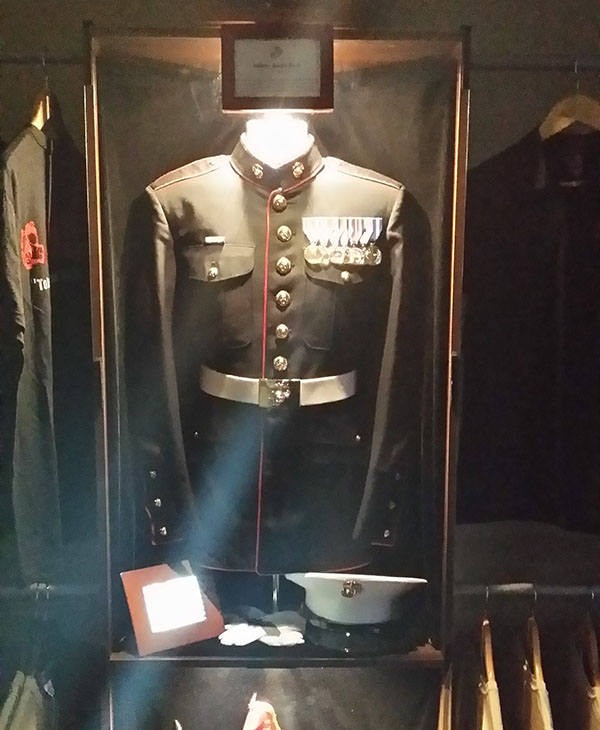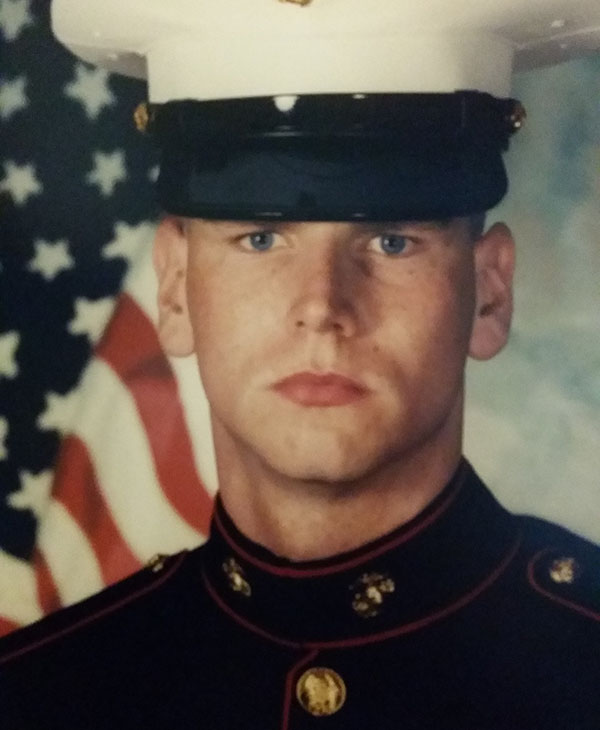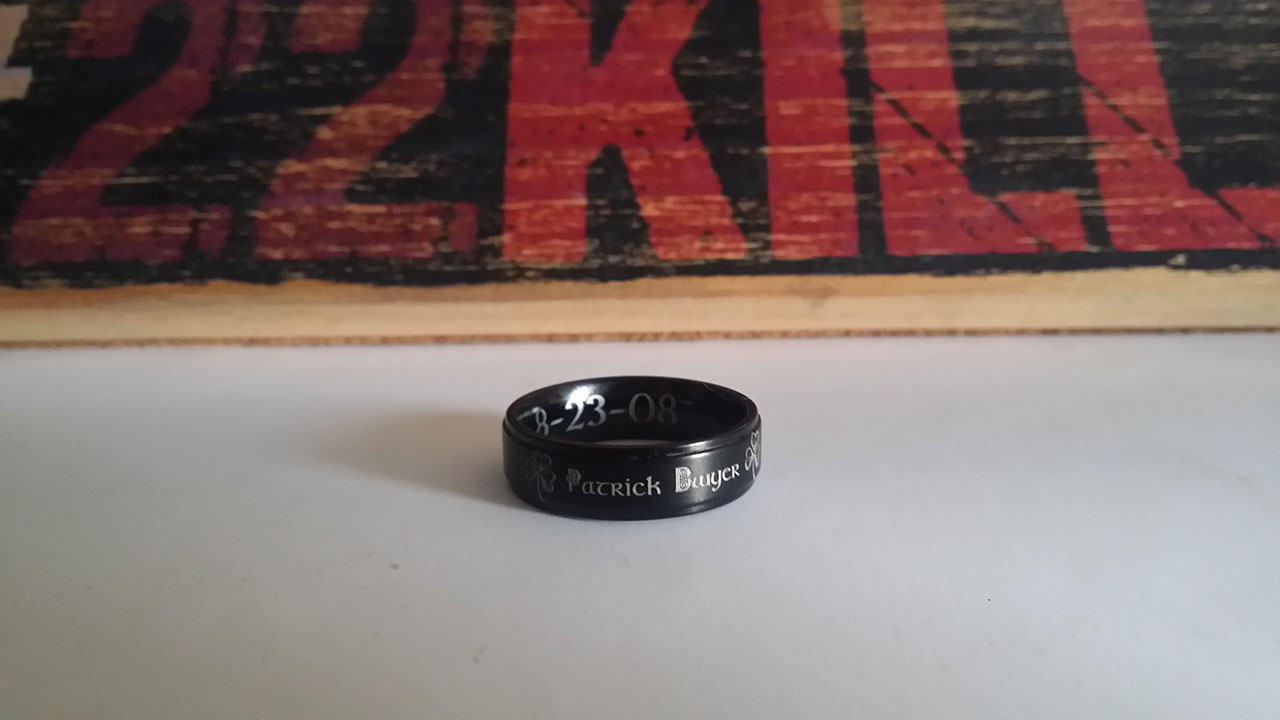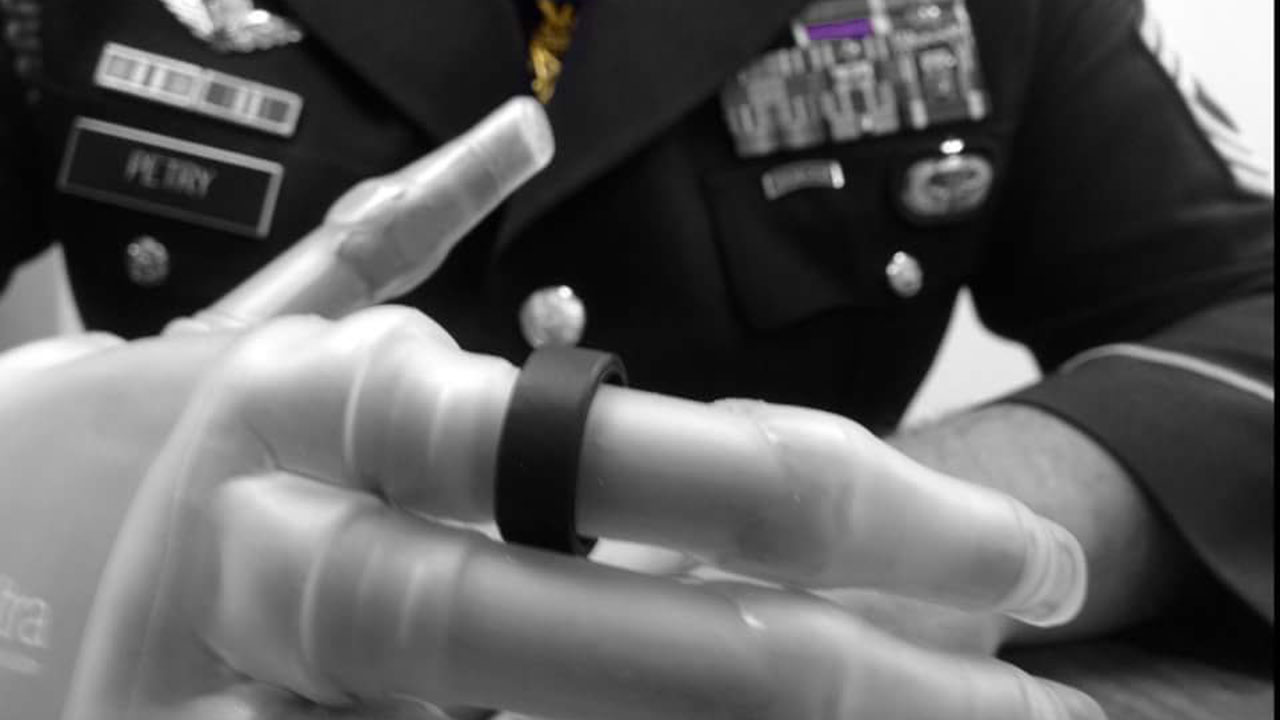Viral internet challenge brings awareness to veteran suicide rate

The Ice Bucket Challenge took the internet by storm in 2014, but now a different challenge is calling out social media users to record and share a video of themselves dropping down and doing 22 push-ups.
It's the 22 Push-up Challenge and the lighthearted social media phenomenon aims at addressing a darker issue - the rate of veteran suicide.
The program director for the organization behind it explained how the social media videos turn into funds for treatment, shared his personal story, and how they're creating a social network of sorts to connect veterans to other veterans, allies, and resources.
Those participating in the challenge record a video stating their name, why they've accepted the challenge, drop down and do 22 push-ups, or as many as they feel comfortable doing, then call out three friends or family members by name to do the same and call out on three more, creating the viral effect.
The videos are then posted to social media using the hashtags "#22pushup" and "#22Kill." Just check how many there are on Twitter alone here.
Some folks are doing 22 push-ups a day for 22 days, but the organization behind it has a goal of a 22 million push-up collective - that way people with all ranges of mobility, who may not be able to perform 22 push-ups, can participate, and even air push-ups count.
The New York Mets, country singer Brantley Gilbert, and UFC fighter Randy Couture, have all taken the challenge, and even a trio of NC mayors from Greenville, Lexington, and Kinston are getting in on the fun.
The gravitation to the number 22 is a nod to the veteran suicide rate.
According to a 2012 study from the US Department of Veteran Affairs, an estimated 22 veterans, on average, take their own lives every day in the United States.
The organization behind the viral challenge is a non-profit called 22 Kill.
The organization pays for specialized care for veterans by sponsoring therapeutic treatment programs that are not covered by the VA or healthcare plans.
22 Kill program director Jimmy Mac said their program aims to reduce the veteran suicide rate by showing veterans there can be "post-stress growth" and bridging the gap between veteran-civilian relations.
"We're trying to remove the stigma of PTSD being a veteran issue," Mac said. "Allow people to understand that this is a human issue we're all going through it, so let's all go through it together. Let's focus on the outcome and have it be in a positive light."
HOW THAT TRANSLATES TO DONATIONS
Mac said the challenge began after the Hersh Foundation offered to donate $100,000 if 22 Kill could get 1000 videos of people doing 22 push-ups.
"Three days later, after we put it out, we had 3,000 videos and they actually ended up making a donation towards a veteran entrepreneur program that we support," he said.
This year, 22 Kill is not issuing the challenge for a donation from a foundation, but they tell us the visibility it provides translates into dollar signs and volunteers.
"The more people know about who we are, the more traffic goes up on our website, the more people make donations, and with those donations we're able to actually send veterans to a myriad of different prevention organizations.
"So we'll still continue to put people through the entrepreneur program, which is a 12-week full time program to help veterans start businesses through one of our partner organizations Honor Courage Commitment Inc.
"We'll send veterans through Camp Valhalla which is a veteran retreat, the Brain Treatment Foundation, conventional counseling, art therapy, music therapy - I mean its countless things that we're actually sponsoring for veterans to go through," Mac said.
He said the programs helps veterans realize their potential for personal growth and can help renew a sense of purpose that may be lost after a veteran hangs up their uniform.
"One of the biggest problems in the military, getting out, isn't necessarily living with what happens overseas or living with what you have to do here ... it's that transition out and it's that brotherhood, the camaraderie, the sense of purpose - those are the biggest things" he said. "People fold that uniform up once their out and that's not it. You want to continue to serve."
Mac said he's felt that way before. He is no stranger to veteran suicide - he attempted it.
SENSE OF PURPOSE
Mac is an East Coast Marine, discharged out of Camp Lejeune.
He said he grew up in a Marine Corps house. His grandfathers on both sides of the family served in WWII, one even received a Purple Heart. And when he was in high school, he dropped everything to join.
"I had an epileptic seizure on base and they determined that I had a preexisting medical condition, so I got discharged with no reentry and I got home, and I didn't know what to do because I had everything set up for me to be a Marine," Mac said.
"I was a young kid still, didn't really have too much of an idea of what to do and I just immediately struggled. I was mad at all the wrong people. I couldn't really figure out how to transition back and things just got worse and worse."
At one point he attempted to take his life, but was lucky to have someone come to his aid.
"They put me in a psychiatric unit and there I was still angry. I was just angry at life in general, but it was there that I realized 'OK, there's a bigger picture here. I'm here - I've got to do something with this,'" he said.
"I started working the trades and I did heating and air conditioning and plumbing, and in 2007 things started getting better each year that went by," he continued.
It wasn't until Mac lost a close family friend, to the same issue, an Army veteran, that he realized he wanted to step in and do something about the cause.
"That was where everything changed on me because I realized it was a problem beyond just me and my personal issues," he said.
"It was tough ... I struggled, I really ... I needed to reconnect with more veterans, so I started from that point on talking to more of the guys I served with, struggled all the time thinking about I was stuck on this 'why, why, why' and the 'what-if, what-if, what-if.' My point of view has since changed to not really think about the what-ifs and start thinking about the what-nows," he said.
That's when he met some of the vets behind Honor Courage Commitment Inc, the parent non-profit that would later create 22 Kill and began the volunteer work that would turned into the full-time job he holds now, and the organization's efforts are seeing returns.
GETTING OUR VETERANS CONNECTED
In addition to the challenge, 22 Kill tries to get veterans and non-veterans alike to stand by vets with PTSD by adding your name, location and phone number to an interactive map, to provide a resource for veterans who are simply looking for someone to talk to.
"PTSD is stress, no matter how you break it down and everybody in this country, in this world, has experienced some sort of stress in their life, and if we're just willing to break that stigma and bridge the gap between us then we can all come together as one," Mac said.
"The whole concept behind it was all you have to do is be there for veterans, or be there for each other ... just be there and listen. You don't have to do anything out of the ordinary, but sometimes people need somebody to talk to or to know that somebody's there if they needed them," Mac said.
The organization calls these volunteers Battle Buddies and asks them to be a resource to veterans, acting as advocates for awareness and a resource in adding new information to the app. Mac said the organization hopes to be able to convert the map into an interactive smartphone map.
The organization is also rallying people around the cause through their Honor Rings. The ring is worn on the index finger, the trigger finger, and is supposed to act as a silent salute to veterans and the proceeds go to sponsor veterans.
Ryan Baldwin is a Raleigh resident, National Guardsman, and Battle Buddy. He said he decided to sign up after a friend called him out on the push-up challenge and he decided to then check out the 22 Kill website.
He said the map is great way for the military and non-military community to connect.
"In society, so many people, they're interacting with technology and to reach people now you're very easily connected to other people that are not right in front of you, that are not in the local area, and we're very heads down on that, and this is, I think a very good way to start," Baldwin said.
"It's just about making people feel worth, and getting that kind of community back together, a positive community together and you can share in the accomplishment," he continued.










